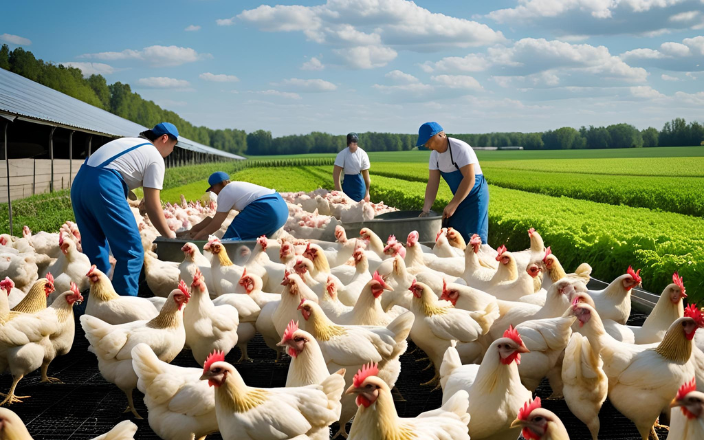Poland’s poultry industry is facing a severe crisis as new outbreaks of Newcastle disease (ND) continue to devastate flocks across the country. Since January 2025, Poland has reported over 30 outbreaks, resulting in the loss of approximately 3.5 million birds. This resurgence comes just months after the sector began recovering from a widespread avian influenza epidemic earlier in the year.
The most significant outbreaks occurred in late May, with one industrial farm in Mazovia province losing around 1.35 million hens. These incidents have been labeled the most severe ND outbreaks in Poland this year. The disease, caused by avian paramyxovirus serotype 1 (APMV-1), has proven particularly resilient, affecting even vaccinated flocks in regions such as Swietokrzyskie, Mazowieckie, and Lodzkie.
The Polish government has mandated vaccination for all commercial poultry farms since April 2025. Despite these efforts, the virus continues to spread, raising concerns about vaccine efficacy and biosecurity measures. Authorities have implemented strict protocols, including daily inspections, isolation from wild birds, and enhanced sanitation procedures.
Major poultry processors like Wipasz have reported significant operational disruptions. Facilities in Podlaskie province experienced supply chain breakdowns and temporary production halts, contributing to financial instability and reduced consumer confidence. The ripple effects are being felt throughout the market, with declining trust and fractured supply chains making recovery increasingly difficult.
Beyond the immediate health crisis, the outbreaks have exposed structural vulnerabilities in Poland’s poultry sector. Overcapacity in slaughtering and processing infrastructure has created an imbalance, exacerbated when disease outbreaks limit poultry availability. This has led to widespread downtimes and financial strain, forcing many companies to shift focus from growth to survival.
Adding to industry concerns is the looming Mercosur trade agreement, which could open EU markets to increased poultry imports from South America. Polish producers fear that these imports may not meet the EU’s stringent production standards, potentially undermining domestic competitiveness.
As Poland grapples with the dual challenges of disease control and market uncertainty, industry leaders are calling for stronger support measures and a reevaluation of long-term strategies. Without decisive action, the future of Poland’s poultry industry remains precarious.
Sources: Available upon request

